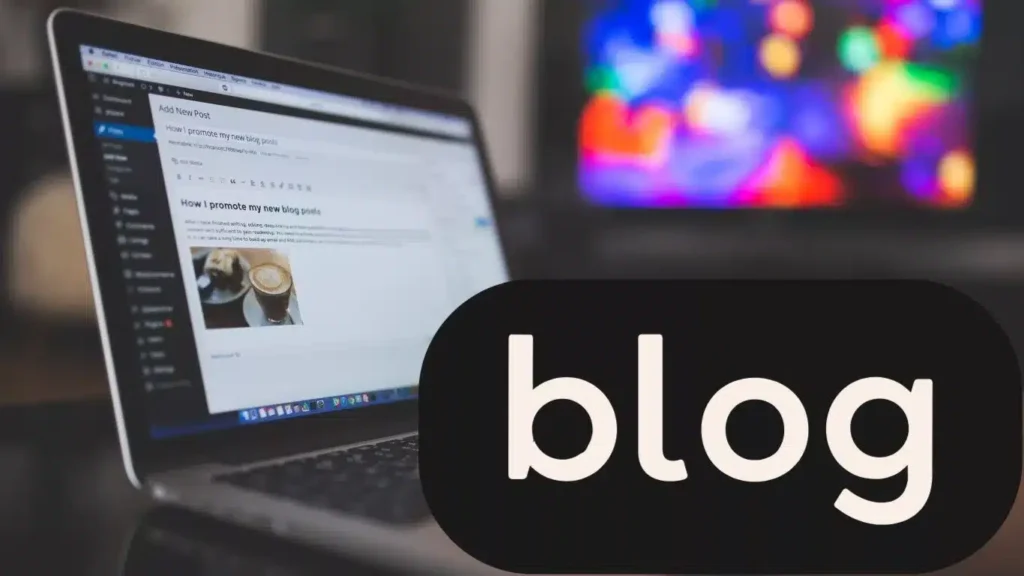- Understanding the Basics of Blogging: host your own blog
- Exploring Different Blogging Platforms: host your own blog
- Setting Up a Domain Name for Your Blog: host your own blog
- Choosing a Reliable Web Hosting Service: host your own blog
- Installing and Setting Up WordPress: host your own blog
- Selecting a Blog Theme That Fits Your Style: host your own blog
- Customizing Your Blog to Match Your Brand: host your own blog
- Writing Your First Blog Post: host your own blog
- Understanding Blog SEO Techniques: host your own blog
- Monetizing Your Blog: Strategies and Tips: host your own blog
- Promoting Your Blog Through Social Media: host your own blog
- Maintaining and Updating Your Blog Regularly: host your own blog
- Analyzing Your Blog's Performance with Analytics Tools: host your own blog
- FAQs
- Why is it necessary to analyze my blog's performance?
- How can I use Google Analytics for my blog?
- Does analyzing blog performance help in monetization?
- How can I promote my blog through social media?
- What are the SEO techniques I should consider for my blog?
- How often should I update my blog?
- How can I customize my blog to match my brand?
Understanding the Basics of Blogging: host your own blog

host your own blog
Host your own blog: In its early incarnation, blogging was essentially an online journal that individuals shared with the world, mainly focusing on their personal lives. Today, its role has greatly diversified. Blogs can now cover a vast array of subjects from technology and marketing to lifestyle and wellness.
From empowering individuals to express their thoughts, feelings, and ideas in front of global audiences, blogging has emerged as a potent tool for businesses, and it is being utilized for building better relationships with customers. [host your own blog]
The key to effective blogging lies in maintaining consistency and offering unique, high-quality content that provides value.
A blog post isn’t merely a text-based write-up. It’s an engaging piece of content that may include images, infographics, videos, podcasts, and other forms of multimedia to make it more inviting and interactive for the readers. [host your own blog]
Understanding readers’ needs and interests, researching about the topic, and presenting it in an appealing way should lie at the very heart of your blogging strategy. [host your own blog]
Click here to sign up for Namecheap’s shared hosting and save 51% on your first year!
Exploring Different Blogging Platforms: host your own blog
Currently, a myriad of blogging platforms are available aimed at catering to a range of blogging needs from the personal to the professional. When deciding to start a blog, the first significant choice to make is regarding the platform that suits your needs and skills best. [host your own blog]
Some of the most popular platforms include WordPress, Blogger, Tumblr, and Medium, providing unique features and a range of tools to create dynamic and attractive blogs. [host your own blog]
Understanding the nuances of each blogging platform helps in making this decision. For instance, WordPress offers significant flexibility, and its vast array of themes and plugins render it a favorite among bloggers seeking a high level of customization.
On the other hand, Blogger is user-friendly, making it suitable for blogging beginners, while Tumblr caters to microblogging fans and Medium is known for its clean layout and focus on quality content creation without much customization.
The choice of platform defines the subsequent steps involved in setting up and growing a blog, hence, it’s crucial to weigh the pros and cons wisely according to your blogging needs.
Setting Up a Domain Name for Your Blog: host your own blog

Selecting the right domain name is integral to establishing an online representation of you or your brand. It plays a significant role in creating a first impression and retaining your audience’s interest. [host your own blog]
Ideally, it must be unique, straightforward and easy to remember. The name should align with the content, the thematic essence of the blog and the intended brand image that you want to project. [host your own blog]
Picking a domain name paves the way to the process of acquiring it. There are numerous domain registrars available like GoDaddy, Namecheap, and Bluehost offering this service. Prices can fluctuate depending on the extension (.com, .org, .net, etc.) and the uniqueness of the name. [host your own blog]
Once obtained, the domain registers to the owner, providing an official URL for the blog platform. This URL helps the audience to gain access to your blog directly. [host your own blog]
Click here to sign up for Namecheap’s shared hosting and save 51% on your first year!
Choosing a Reliable Web Hosting Service: host your own blog
Every blogger’s journey starts with making key decisions, one of which is selecting the right web hosting service. This choice not only determines the performance of your blog but also impacts visitor’s experience. [host your own blog]
Prioritizing factors like uptime, speed, and customer support will help ensure you choose a service provider that can adequately support your blogging goals. [host your own blog]
It’s equally essential to consider the scalability of the hosting service. As your blog grows with time you might need more resources, and the platform you choose should be able to accommodate this growth. Also, pay attention to the pricing structure to guarantee you get good value for money. [host your own blog]
Reading reviews and asking for recommendations can also point you in the right direction. It’s a crucial step to make, thus it needs time and careful consideration.
Installing and Setting Up WordPress: host your own blog

Once you have chosen your domain name and settled on a stable web hosting service, it’s time to bring your blog into existence. [host your own blog]
WordPress is the go-to content management system (CMS) for many enthusiasts as well as professional bloggers, primarily due to its ease of use, flexibility and substantial support. The process of installation is often provided by web host companies as a “one-click-installation.” [host your own blog]
So, what comes after installation? Setting your site up, of course. Initial setup involves a number of important decisions that will significantly impact the look and feel of your blog. [host your own blog]
Some of these decisions include selecting your preferred domain, setting your site title, picking a username, and securing your account with a strong password. [host your own blog]
After filling in these basic details, you will be directed to the Dashboard, which serves as the control room of your WordPress site. Here, you can explore, tinker with settings and start your blogging journey. Remember, patience and a systematic approach will make this setup process smoother and more efficient.
Selecting a Blog Theme That Fits Your Style: host your own blog
Entering the world of blogging is more than just writing excellent content; it involves curating a visual experience that exemplifies your style and voice. Amid an endless variety of blog themes available on numerous platforms, the challenge lies in making the right choice. [host your own blog]
A thoughtful selection is necessary to ensure that your blog’s design complements its content and resonates with its target audience, thus making your site more appealing and user-friendly. Thus, your chosen theme should be a reflection of your blog’s personality, intended to enhance the user interface and give your readers a sense of your unique style.
Moreover, the success of your blog does not solely depend upon the quality of your posts, but also on the navigability and aesthetics of your chosen theme.
Taking the time to analyze different blog themes based on their functionality, load speed, responsiveness, ease of customization, and integration with essential plugins can substantially improve your blog’s overall performance.
Hence, the decision should not be rushed or treated as a trivial matter. Selecting a theme is a critical step in setting the tone of your blog, influencing the reader’s perception, and ultimately, the success of your blog.
Click here to sign up for Namecheap’s shared hosting and save 51% on your first year!
Customizing Your Blog to Match Your Brand: host your own blog

When building an online presence, consistency is key. It extends from the tone of your content to the visual aesthetics of your blog. To mirror your brand’s persona appropriately, consider the colors, typography, and imagery you are using.
They should all reflect your brand identity and the message you’re trying to convey to your audience. This might mean using corporate colors if you operate a business blog, or perhaps a more light-hearted and quirky design if your focus is on lifestyle or personal narratives.
One aspect often overlooked is your blog’s layout. The site’s navigation and structure should be user-friendly and intuitive. Remember, the goal is to keep your readers engaged and wanting to explore more. Additionally, adding personalized touches such as a distinctive logo, favicon, or custom headers can further enhance brand recognition.
Keep in mind, customization is not just about making your blog aesthetically pleasing, it’s about creating a cohesive and integrated user experience that aligns with your brand.
Writing Your First Blog Post: host your own blog
Embarking on the journey of creating your first blog post can feel both exciting and daunting. You may be overwhelmed with ideas or unsure where to start.
The key lies in planning. Begin by brainstorming ideas, researching your topic, and establishing an outline. Draft a catchy headline and create compelling, meaningful content that resonates with your audience.
Your first blog post should be a reflection of your brand’s identity and voice. It is essential to keep your tone consistent, whether it be professional, casual, or conversational. However, don’t stress too much about making everything perfect.
An authentic, human touch can go a long way in engaging your readers. Remember to break up your content into digestible sections using subheadings, bullet points, and images to make your post reader-friendly.
Understanding Blog SEO Techniques: host your own blog

Search Engine Optimization (SEO) strategies play a vital role in developing a successful blog. It’s about leveraging specific techniques to make your website more attractive to search engines, thereby enhancing its visibility in search results. When your blog ranks higher on a search results page, it is more likely to get clicks from users.
Start with quality content creation because search engines value unique, relevant, and updated content. Use relevant keywords that your potential readers might input on search engines. Other essential SEO aspects include optimizing your metatags and meta descriptions, focusing on creating a mobile-friendly design, and ensuring easy navigation.
Backlinks, i.e., links from other respectable websites directing to your blog, will also amplify your site’s reliability and trustworthiness. Furthermore, incorporating social sharing buttons on your blog posts also contribute to your blog’s visibility. These SEO techniques will boost your blog’s visibility, ease of access, and ultimately, its overall success.
Monetizing Your Blog: Strategies and Tips: host your own blog
Monetizing a blog is more than just adding advertisements to it; it’s a strategic process that can lead to a substantial income when done right. The process begins with an understanding of your audience, their interests, and their intent.
Knowing these will inform the type of content you create, the products you sell or promote, and the ad networks you join. Remember, relevance is necessary as people are more likely to spend money on things that are aligned with their interests.
One proven monetization method is through affiliate marketing. This involves promoting products or services from other businesses and earning a commission on sales made through your referral link. The key to successful affiliate marketing is to promote products that your audience will find useful and are linked to the content you create. [host your own blog]
Another approach is to create and sell your products, like ebooks, courses, or webinars. This not only allows you to profit directly but also helps establish your expertise in your respective niche. Always ensure that the monetization strategy you choose aligns well with your blog’s brand and audience. [host your own blog]
Click here to sign up for Namecheap’s shared hosting and save 51% on your first year!
Promoting Your Blog Through Social Media: host your own blog

The power of social media as a marketing tool cannot be underestimated in the world of blogging. With billions of active users globally, platforms such as Facebook, Twitter, Instagram, and LinkedIn present a golden opportunity to not only share your blog content but also create a loyal following. [host your own blog]
It’s all about connecting and engaging with your audience, sharing relevant content, and cultivating relationships that encourage people to visit your blog routinely.
A good starting point is setting up accounts on various social media platforms dedicated to your blog. Each of these platforms has unique attributes that might appeal to different sections of your audience. Twitter, with its quick, snapshot style posts, is ideal for short updates or teasers for your blog, leading followers back to your blog site for more.
Instagram, with a primary focus on visuals, is perfect for sharing compelling images or infographics from your posts. Facebook and LinkedIn, on the other hand, cater to more in-depth discussions and allow for lengthier excerpts from your blog.
Regularly interacting with your followers, responding to comments and DMs promptly, and maintaining an active online presence are key to enhancing your blog visibility through social media.
Maintaining and Updating Your Blog Regularly: host your own blog
Maintaining a consistent schedule for updating blog content is crucial in the world of blogging. It is a proven method to keep readers intrigued and returning for more. [host your own blog]
Regularity in posts ensures content freshness and also signals search engines like Google that your blog is active, which can ultimately enhance its ranking. Therefore, making content calendars is beneficial for scheduling posts and also aids in diversifying the content on your blog.
Updating a blog includes not just producing fresh posts but also revisiting old ones. Content on the internet is continuously evolving. [host your own blog]
Old posts may contain information that’s outdated or no longer relevant. Take the time to revise old posts based on newer information.
This practice, known as content refurbishing, can help maintain accuracy while improving the SEO ranking of old posts and driving more traffic. [host your own blog]
Analyzing Your Blog’s Performance with Analytics Tools: host your own blog

Analytics tools provide a wealth of information regarding your blog’s performance. They collect and present data on various aspects such as the number of visitors, their location, pages viewed most frequently, the amount of time spent on your blog etc.
This data is crucial in understanding your audience and their behavior, which can then be leveraged to improve the blog’s content, design, marketing strategies, and other aspects. [host your own blog]
However, simply having access to data is not enough. You need to understand how to interpret your analytics data to make strategic decisions. For example, if you notice high bounce rates on certain pages, it may indicate that the content is not engaging enough or the page load time is too slow.
Or, if the majority of your audience is from a particular region, you might consider creating content that appeals to that audience. These are just a few ways of using analytics tools to improve your blog’s performance and grow your audience. [host your own blog]
Click here to sign up for Namecheap’s shared hosting and save 51% on your first year!
FAQs

Some effective tools include Google Analytics, Jetpack, Mixpanel, and Clicky. These tools provide detailed insights about your blog’s traffic, audience demographics, user behavior, and other valuable statistics. [host your own blog]
Why is it necessary to analyze my blog’s performance?
Analyzing your blog’s performance helps you understand what content resonates with your audience, track your blog’s growth, identify areas for improvement, and make data-driven decisions to enhance your blog’s success. [host your own blog]
How can I use Google Analytics for my blog?
Google Analytics can be installed on your blog through a simple process. Once installed, it gives you access to various metrics like user demographics, page views, bounce rate, session duration, etc. You can use these metrics to evaluate your blog’s performance. [host your own blog]
Does analyzing blog performance help in monetization?
Yes, by analyzing your blog’s performance, you can understand what type of content drives more traffic and engagement. This can help you plan your content strategy better, attract more visitors, and increase opportunities for monetization. [host your own blog]
How can I promote my blog through social media?
You can promote your blog by sharing your posts on various social media platforms like Facebook, Twitter, Instagram, and LinkedIn. You can also engage your audience by responding to comments, participating in discussions, or running social media campaigns. [host your own blog]
What are the SEO techniques I should consider for my blog?
Some blog SEO techniques include keyword optimization, creating quality and fresh content, optimizing images, using meta tags, building backlinks, and ensuring fast page loading time. [host your own blog]
How often should I update my blog?
Regular blog updates are crucial for keeping your audience engaged. You should aim for at least one new post per week. However, the frequency can depend on the nature of your blog and your audience’s expectations. [host your own blog]
How can I customize my blog to match my brand?
You can customize your blog by choosing a theme that aligns with your brand’s color scheme and style. You can also add your logo, create a unique layout, use consistent fonts, and incorporate your brand’s voice and tone in your content. [host your own blog]


1 thought on “14 top new host your own blog ideas”